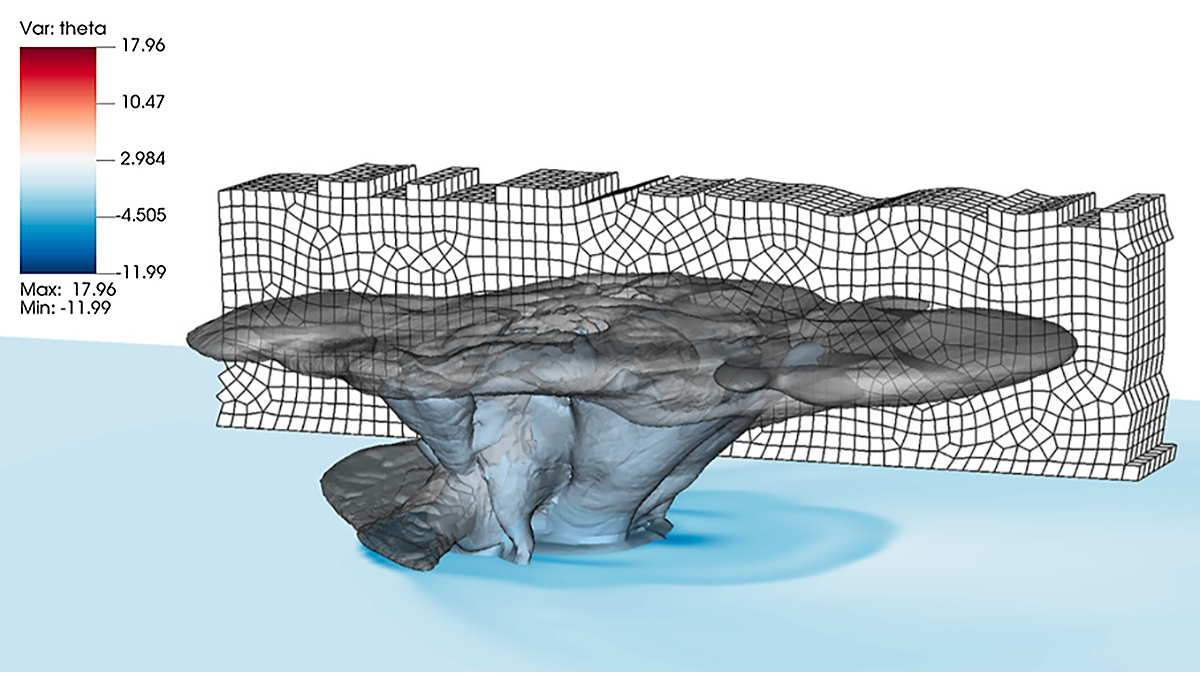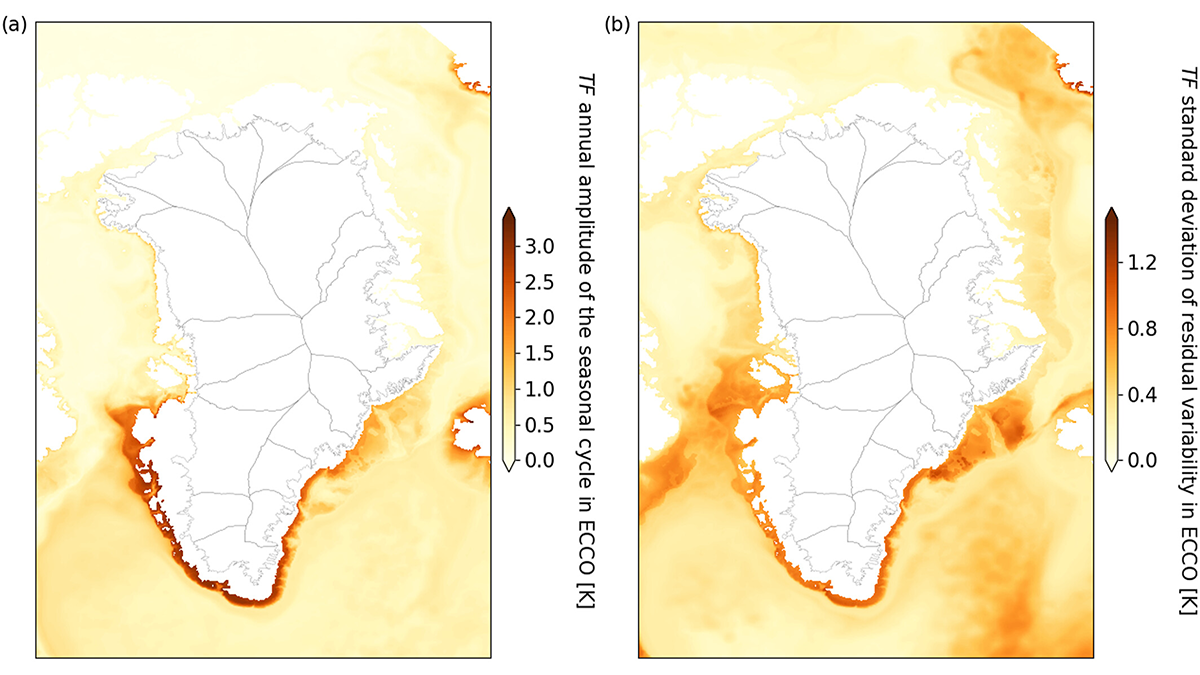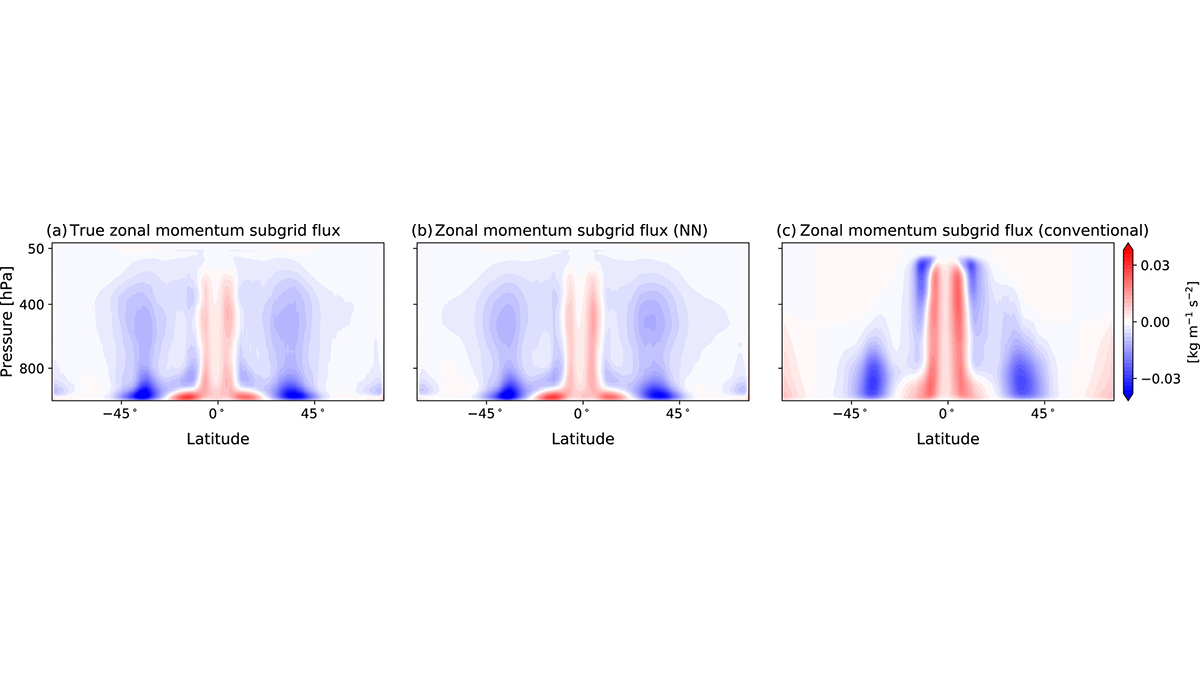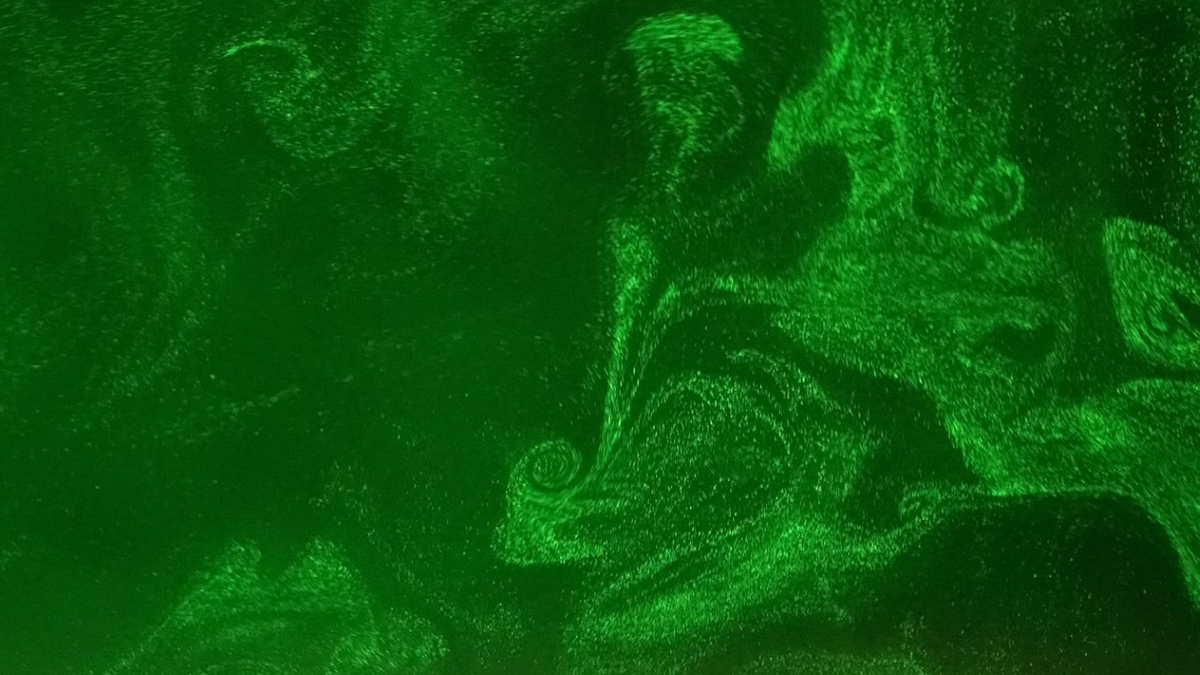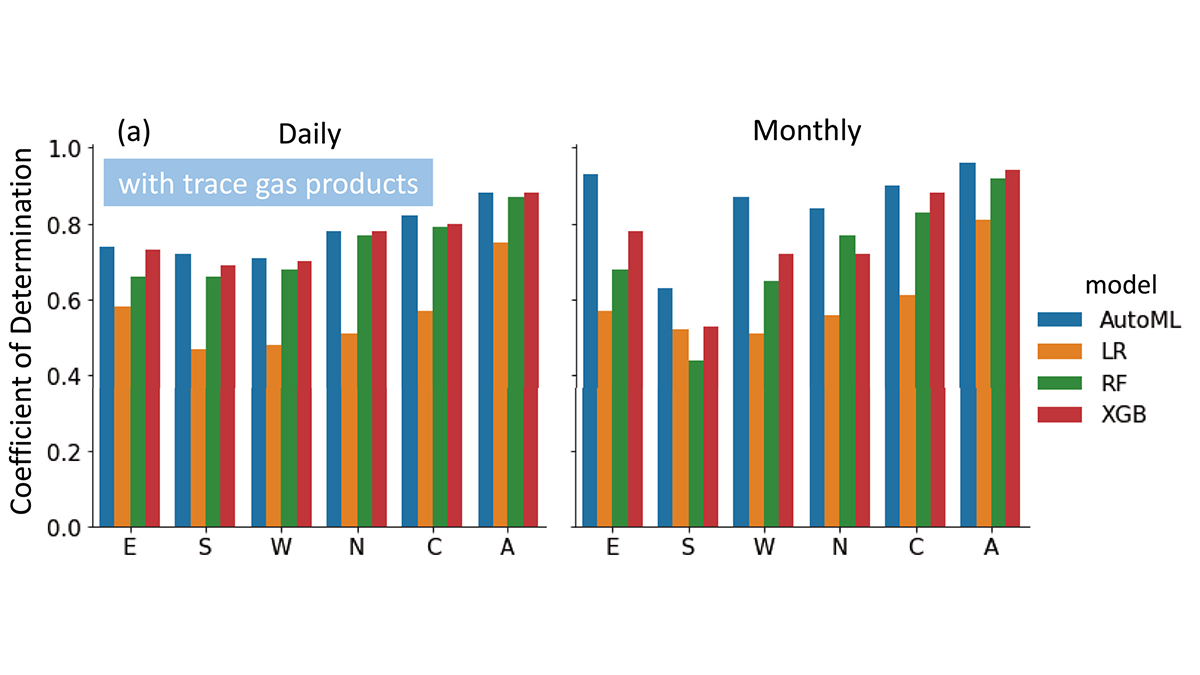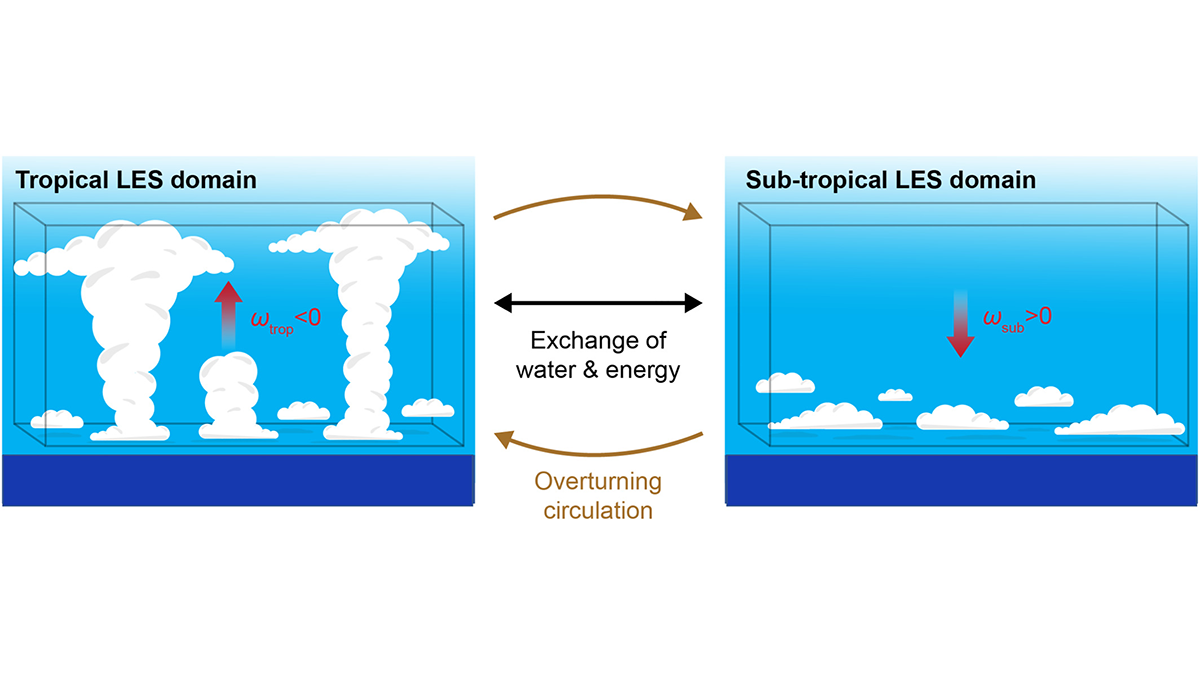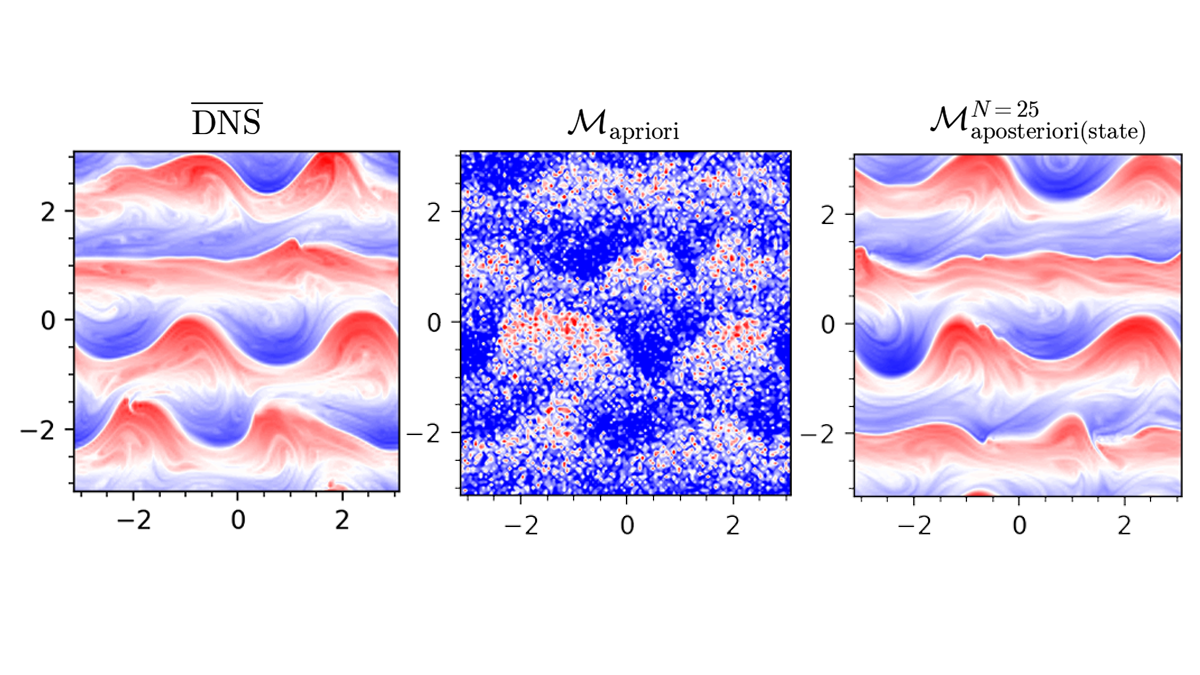A new non-column based spectral element implementation of cloud microphysics enables full 3D flexibility in computing clouds and improves computational efficiency.
Journal of Advances in Modeling Earth Systems (JAMES)
Going with the Flow: New Tool Improves Sea Level Projections
By bringing together multiple data sources a new statistical method aims to improve the accuracy with which we might predict future ice melt in Greenland.
New Machine Learning Parameterization Tested on Atmospheric Model
For the first time, a neural network parameterization of subgrid momentum transport is developed by training on a coarse-grained high-resolution atmospheric simulation.
Taking Cloud Microphysics Experiments to the Next Level
Experiments in a cloud chamber have provided valuable insights into microphysical processes and will get more realistic as the height of the chamber increases.
Unleashing the Power of AutoML for Atmospheric Research
Automated Machine Learning liberates domain scientists from selecting learners and hyperparameters and discovers the importance of atmospheric trace gases for improving surface PM2.5 estimates.
Better Resolution Might Unlock the Mystery of Storms
Climate models have many persistent and systematic biases, but a new study shows that allowing for a physical rather than statistical representation of energy transport reduces one of them.
A New Approach to Spinning-Up Passive Tracers in Ocean Models
A new computational method enables finding steady-state distributions of tracers in ocean circulation models, opening opportunities for physical and biogeochemical insight.
Examining Aerosol-Cloud-Climate Interactions at a Large Scale
A new numerical setup demonstrates that aerosols could affect clouds, and hence the radiation budget, thousands of kilometers from their location.
Interactive Learning for Better AI-Based Subgrid-Scale Modeling
A study shows that interactive learning can significantly enhance the performance of artificial intelligence-based parameterization of small-scale processes, a critical component of climate models.
To Estimate Plant Water Use, Consider the Xylem
New research shows that chemical isotopes from plant xylem can improve representations of the forest water cycle.

